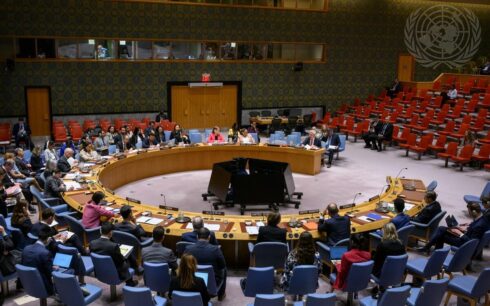KABUL, Afghanistan — A coalition of Afghanistan’s political opposition figures has warned that the UN’s proposed roadmap for Afghanistan will fail unless it includes meaningful participation from Taliban critics, women, and civil society representatives.
In a statement, the Supreme Council of National Resistance for the Salvation of Afghanistan, a group of former political leaders opposing Taliban rule, criticized the UN’s “Mosaic” initiative, arguing that it overlooks key realities on the ground, including human rights abuses and sweeping restrictions on women.
“Any proposal concerning the future of the Afghan people that lacks genuine representation is unacceptable and doomed to fail,” the council said in the statement, a copy of which was shared with Amu TV. “The United Nations has so far failed to approach Afghan society with an impartial and balanced understanding. As a result, none of its initiatives have succeeded.”
The reaction comes amid intensified UN consultations with regional powers and global actors around the Mosaic plan, which reportedly centers on forming an inclusive government in Afghanistan, ensuring respect for human rights, and strengthening counterterrorism efforts.
According to diplomatic sources familiar with the process, those three pillars remain central to international expectations. However, Taliban leaders have used the same process to push their own demands: lifting of sanctions, access to frozen assets, and formal recognition of their government — including assuming Afghanistan’s seat at the United Nations.
Despite nearly four years in power, the Taliban have repeatedly dismissed international demands for inclusive governance and the protection of women’s rights. Still, they continue to seek legitimacy and recognition on the global stage.
“The UN plan is unacceptable in the absence of both domestic and international legitimacy for the Taliban,” said Hatif Mokhtar, a political figure affiliated with the opposition council. “No externally imposed plan can resolve Afghanistan’s crisis. The Taliban must return to the will of the people.”
The council’s statement argued that engaging only with the Taliban — without representation from other political movements, women, and civil society — would render the initiative ineffective. The group called for the UN to acknowledge what it described as the Taliban’s unilateral and repressive policies.
The Taliban, despite lacking international recognition, have pushed for broader diplomatic acceptance. In the context of the Mosaic plan, they have again pressed for the removal of sanctions and the return of Afghanistan’s frozen financial assets, while continuing to exclude women and opposition groups from political life.
The United Nations has yet to respond publicly to the resistance council’s statement.



